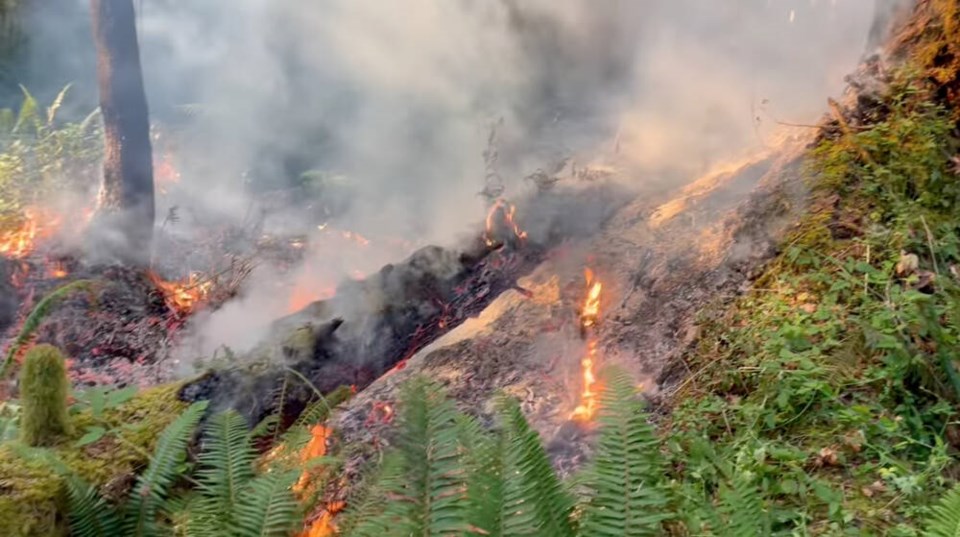All 47 wildfires on Vancouver Island this season have been caused by humans, according to the B.C. Wildfire Service — including three reported Monday just outside Port Alberni city limits.
The three fast-moving blazes were discovered early Monday south of the Port Alberni Highway.
Two of the three fires in the Roger’s Creek area were out and the last one was considered under control as of 6 p.m. Monday, according to the B.C. Wildfire Service.
Coastal Fire Centre information officer Jade Richardson said eight firefighters and a helicopter attacked the three fires, which were about 200 metres apart.
Human-caused fires are often started by discarded cigarettes and sparks from off-road vehicles, machinery or other vehicles. Richardson said none of the blazes recorded so far this year on Vancouver Island were ignited by lightning.
When a fire is caused by humans, natural resource officers are brought in to determine if it was started by illegal activities, she said. The entire Island is currently under campfire and opening burning bans.
Of the 98 wildfires burning in B.C. on Monday, 53 were considered out of control.
Monday’s fires came as Canada broke its record for total area burned. Raging fires have torched more than 75,000 square kilometres of land so far this year, an area the size of Panama.
“We’re in a new territory for fire in a modern record,” said Mike Flannigan, a professor at Thompson Rivers University in Kamloops researching fire weather and climate change.
The previous record was set in 1989.
So far, Quebec has seen the most land burned of any province or territory. Alberta, Saskatchewan, B.C., the Northwest Territories and Nova Scotia have also been hit hard.
The normal peak wildfire season varies across Canada. Historically, half the land burned in Alberta every year is set ablaze in May.
“Most jurisdictions have passed their prime,” Flannigan said. “With the exception of British Columbia.”
Since the 1970s, the average annual area burned in Canada has roughly doubled. And while this year Quebec has faced immense wildfires, Flannigan said the long-term trend is clearest in B.C.
The amount of land burned in British Columbia this year has already placed 2023 among the top three wildfire seasons on record. The other three largest seasons (2017, 2018 and 2021) all came within the last five years.
This year’s Donnie Creek wildfire, which is still growing, is the largest in the province’s recorded history, and has now burned an area twice that of Metro Vancouver.
Experts say it’s part of a trend of bigger, hotter fires burning more often. Part of that is a legacy of fuel left over in Canadian forests after decades of logging. But Flannigan said research is pointing to human-caused climate change playing a bigger role.
Canada’s record-breaking season this year came after a powerful spring heat wave spread across Western Canada. Climatologists with Environment Canada have already reviewed preliminary data that indicates the event was likely shaped by human-caused climate change.
David Campbell, head of B.C.’s River Forecast Centre, warned last week that the hot spring weather combined with low rates of precipitation to melt much of the province’s snowpack. The result, he said, is that B.C.’s rivers could face record drought conditions not expected for another 30-plus years.
“The fact that we’re trending at historic low in so many rivers right now, we’re headed to a potential worst-case scenario,” he told Glacier Media.
Environment Canada’s summer seasonal forecast, meanwhile, calls for above-average temperatures across most of the country.
“I’m fairly confident July’s going to be above-normal temperatures for much of Canada,” Flannigan said.
“It kind of loads the deck for fire.”
— With files from The Canadian Press


